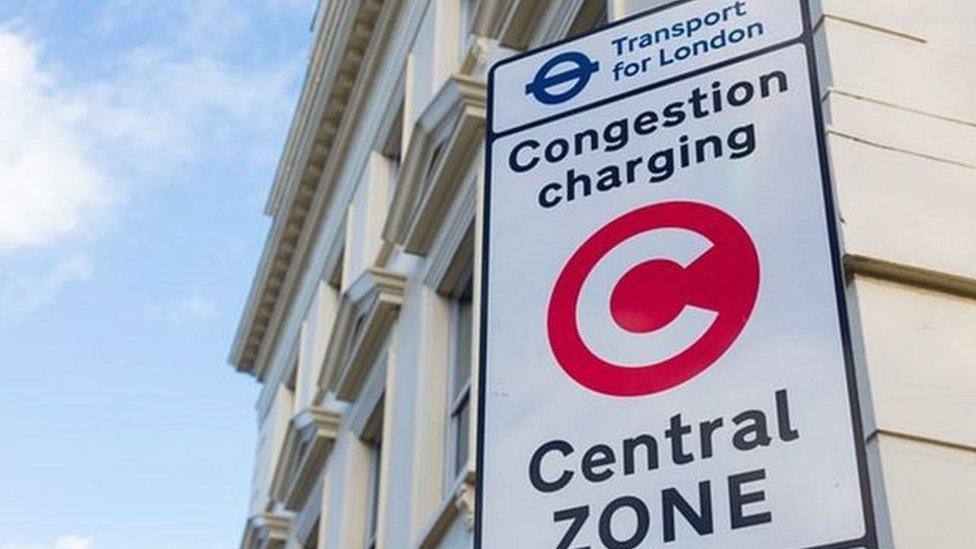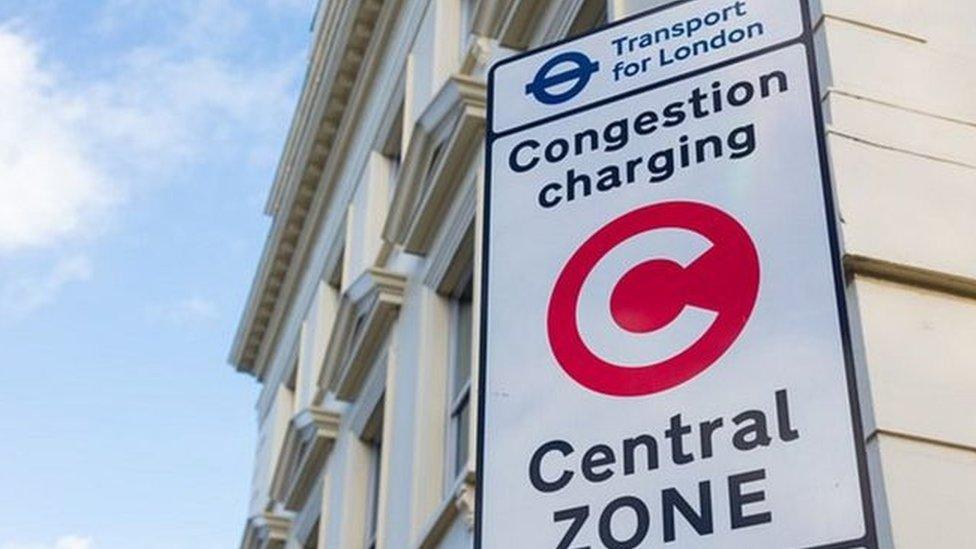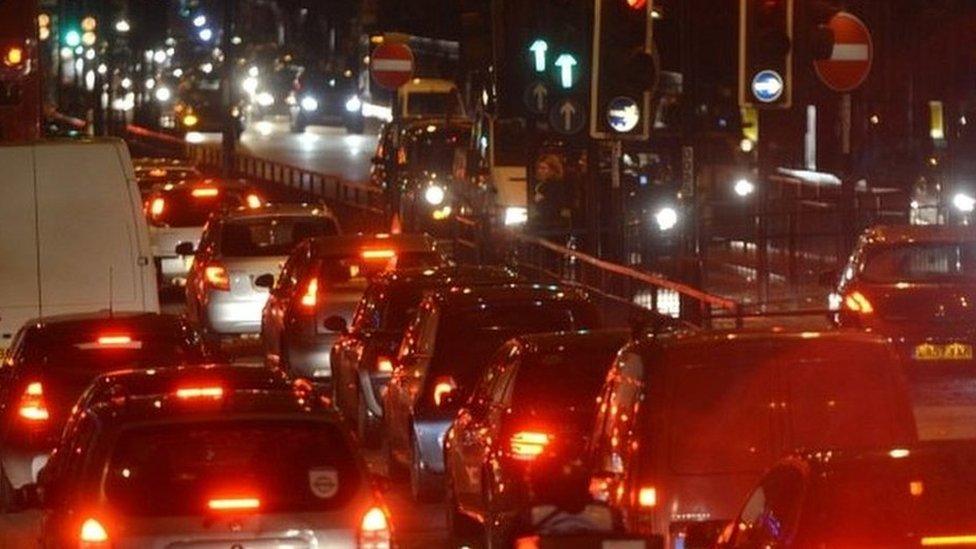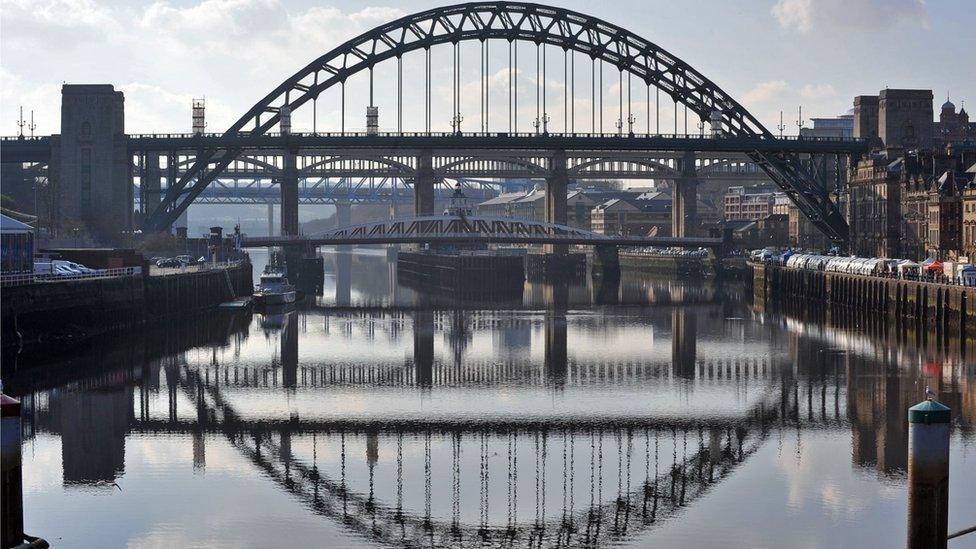Minicab congestion charge 'does serious harm to drivers'
- Published

Sadiq Khan said the move had been designed to reduce congestion
The introduction of a congestion charge for minicabs in London does "serious harm" to black and ethnic minority (BAME) drivers, a court has heard.
The exemption from the daily £11.50 daily charge was removed from private hire vehicles in April.
At the High Court, the Independent Workers Union (IWGB) is challenging that decision.
Mayor of London Sadiq Khan said the move had been designed to reduce congestion.
IWGB argues removing the minicab exemption indirectly discriminates against a 94% BAME workforce.
It said 88% of London's traditional black cab drivers were white and remained exempt from the charge.
The union also said women, who are more likely to work part-time, were disproportionately affected, and disabled passengers would be adversely affected by a reduction in the number of available minicabs.
Ben Collins QC, representing IWGB, told the court 71% of minicab drivers affected live in the capital's most deprived areas and worked long hours to make ends meet.
Lawyers for Mr Khan and Transport for London (TfL) said the removal of the exemption was an "important means of reducing road congestion and traffic within the Congestion Charge zone without reducing the number of wheelchair-accessible passenger transport vehicles".
The decision was "a proportionate means of pursuing the legitimate aims of reducing road traffic and congestion", Martin Chamberlain QC said.
The case is being heard by Mr Justice Lewis over two days. He is expected to reserve his judgment.
- Published19 December 2018

- Published19 January 2017

- Published13 December 2018
